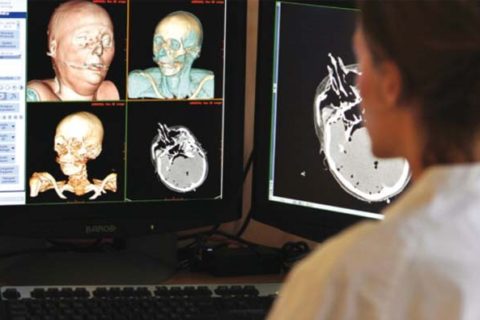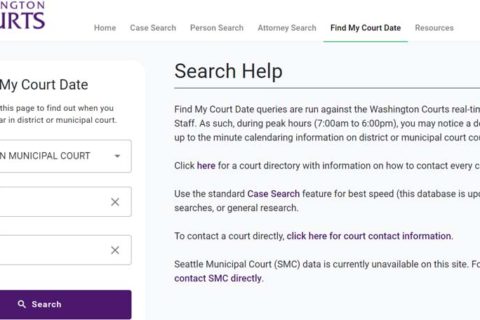A criminal complaint is a statement of important facts about an alleged crime, when filed in Court, formally begins the criminal process. If the evidence is deemed sufficient to prosecute, then a complaint is filed. By the way, how do you file a criminal complaint against someone? Let us find out that answer by reading this entire article.
About Criminal Complaint
A criminal complaint is a self-contained charge which sets forth sufficient facts, with reasonable inferences, to allow an individual to reasonably conclude that a crime was likely committed and that the suspect/defendant is likely culpable.
Also, a criminal complaint is known as a felony complaint. It is slightly different from a civil complaint. Instead of an individual filing the complaint, usually the government files the criminal complaint against the individual. But several states allow individuals to file criminal complaints. Basically, it is a judicial order, a court-issued document which charges the defendant with specific crimes.

As the name implies, a person is charged with a crime via the criminal complaint.
-
- Typically, in criminal cases, the police first arrest the defendant, and then file a report to the local prosecutor.
- After that, the prosecutor decides whether to process charges against the defendant formally.
- The prosecutor’s decision to charge the defendant with the crime depends on whether there is enough evidence and whether the case is worthy of the prosecutor’s time.
- In several states, the criminal complaint has to be filed before the court issues an arrest warrant.
The processes for a complaint will vary throughout jurisdictions. Usually, it is the prosecutor who determines whether to present the criminal complaint to the court.
Normally, criminal complaints are first started with the application for a complaint, along with an affidavit by the complainant that is titled an affidavit of probable cause. The judge will examine the statements in the application and affidavit. In several cases, the judge is going to hold a hearing with notice to the defendant to examine all statements. If the judge is sure and satisfied that there is sufficient probable cause that the individual in the complaint committed the specified crimes, then the judge signs and issues the complaint. Occasionally, the complaint results in an arrest warrant. In other examples, the judge issues a compatible warrant.
Statutes typically limit filing an application for a complaint to the prosecutors, police officers, victims, or witnesses.
How to File a Criminal Complaint Against Someone?
Apparently, there are some steps to file a criminal complaint against someone when the police are not involved.
-
- Go to the police station in the city or town closest.
At the first step, you have to go to the police station in the city or town closest to where the incident or offense took place. - Obtain a form and fill out that form
After that, you have to get a form and fill out the form. Part of the form will prompt you what happened. You have to fill out this form carefully because it will be part of your statement to the court. If you have trouble filling out the form or you need help with your case, you are able to ask for help from the court’s Victim/ Witness Advocate. The clerk at the desk will be able to tell you how to discover someone to help you with the paperwork. - Submit the form to the police.
After you have filled out the form, give it to the clerk to file.
- Go to the police station in the city or town closest.
You will need to take a copy of the completed Incident Report form to the court which is closest to where the incident or offense occurred and also complete an application for a criminal complaint.
Next step, you have to attend the hearing. Once the application form is filed with the court, then a hearing will be scheduled. The defendant will be notified by mail. Both parties are needed to attend the hearing. The application has to include the correct address of the defendant so that they are able to be summoned to appear at the correct courthouse. If a correct address is not provided, the hearing will not proceed. If the complainant (the person who filed the application) does not appear at the hearing, then the application can be denied.
The defendant cannot hire an attorney for the hearing. An attorney is not appointed for this proceeding. At the hearing, if the clerk-magistrate discovered probable cause (sufficient evidence), the criminal complaint is going to be issued. If the clerk-magistrate does not discover probable cause, then no criminal complaint will be issued.
Will There Be Anyone in Court to Help Me If I Decide to File a Criminal Complaint?
If your case goes to criminal court, then the District Attorney’s office will prosecute the case. Apparently, there are two types of people you will probably speak with in the District Attorney’s office:
- The Assistant District Attorney (ADA)
The Assistant District Attorneys are the lawyers who prosecute crimes. You are going to see them handle the arraignment, the trials, and any other hearings during criminal cases. The Assistant District Attorneys should talk to you about the case and assist prepare you for talking to the court about what happened.
- The Victim/Witness Advocate (VWA)
Each District Attorney’s office has a Victim/Witness Assistance (VWA) Program. The people who work in this office will assist the victims and witnesses of crimes. Probably, you are going to meet the Victim/Witness Assistance right at the start of the case. You have to write down the name of the Victim/Witness Assistance who is on your case, and then call them whenever you have questions or concerns about the case. The Victim/Witness Assistance (VWA) often has a hotline telephone number. The Victim/Witness Assistance (VWA) will be able to help you understand how to file your criminal complaint, understand what will happen in the criminal court, understand your rights, prepare for testifying against the abusive person in the criminal court, find out when the abusive person will be let out of the prison, and get services which you need.

A bookworm and researcher especially related to law and citizenship education. I spend time every day in front of the internet and the campus library.





